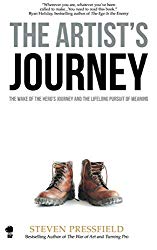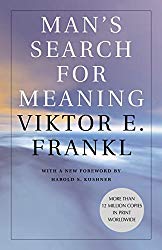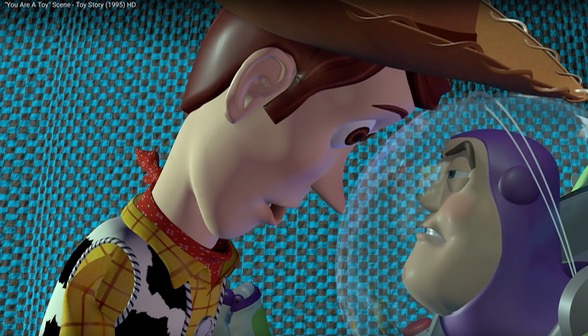
When helping people write life stories, one of the questions I zero in on is: What is your purpose? Do you feel your life has had a purpose that has remained consistent over time, or have there been different purposes at different phases in your life? Are you still searching to understand what your purpose is? The process of thinking about your purpose, passion, and gifts is powerful, and new insights usually emerge when you work through the questions addressed in this article. In terms of writing, the idea of purpose ties to your story’s theme so you want to get clear on it.
Recently a writer friend of mine, Cheryln Gibbs, and I were discussing Aristotle. She shared how Aristotle asked this foundational question, “What is good?” She paraphrased his conclusion in a way that was so powerful I taped it to my computer. It is this:
A thing is good when it fulfills its intended purpose.
Cheryln Gibbs, paraphrasing one of Aristotle’s important ideas.
Perhaps this insight struck a chord with me because I was analyzing the movie Toy Story I to use as an example in class. Children’s movies often provide surprisingly poignant examples, and we examined Buzz Lightyear’s character development to show deeper truths about the struggles faced by teens in class. And let me say, these are struggles we all face. I can’t help but ask myself the perennial question, “Am I good?”
At the beginning of the movie, Buzz believed he was an actual space ranger, but there came a point when he realized that he was not. Woody had been giving some not-so-subtle hints, “You are a TOY!” But Buzz had brushed Woody off as a, “Sad little man.”
(Disclaimer: This page contains a few affiliate links which means if you purchase a book on Amazon with our links, we make a small commission. We really appreciate it! This is a tiny part of our income, but every bit helps.)

Buzz then understood that he was a toy and not a defender of the galaxy. There are a gazillion other Buzz Lightyear toys made from the same mold. His whole concept of himself turned upside down in an instant, and he became emotionally unhinged. He could not accept his real intended purpose, the thing for which he was actually made.
Related article: Types of journal writing and how to start a journaling habit
Buzz, Woody and feelings of insignificance
This realization led to the “darkest hour” beat of Toy Story. Rather than me paraphrasing what happens next, read the scene’s dialogue, showing Buzz at his lowest point.
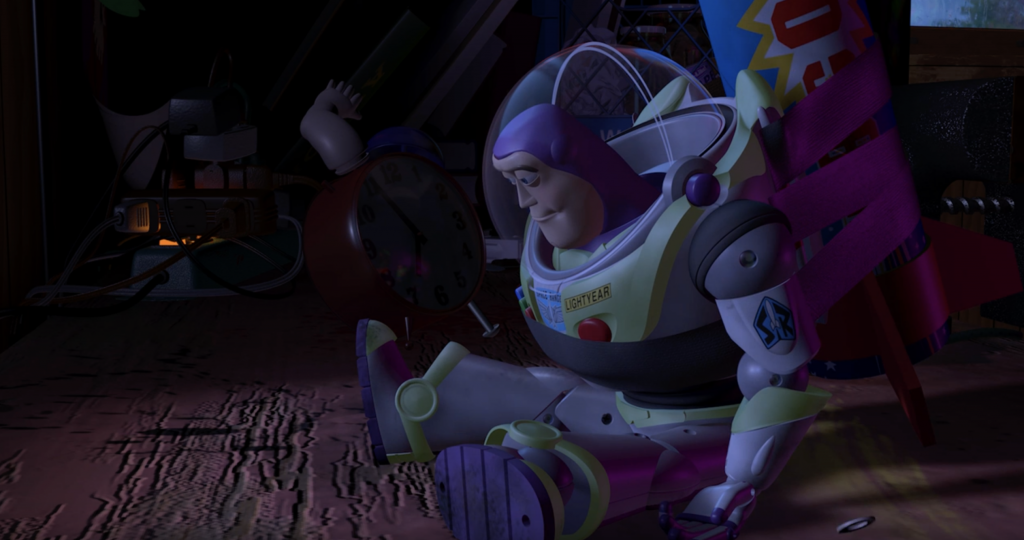
Buzz: For the first time, I am thinking clearly. You were right all along. I’m not a space ranger. I’m just a toy. A stupid, little insignificant toy.
Woody: Woah, wait a minute. Being a toy is a lot better than being a space ranger. Over in that house is a kid that thinks you are the greatest. And it’s not because you are a space ranger, pal. It’s because you are a toy. You are his toy.
Buzz: But why would Andy want me?
Woody: Why would Andy want you? Look at you! You’re a Buzz Lightyear! Any other toy would give up his moving parts just to be you…you are a cool toy!…As a matter of fact, you’re too cool. I mean, what chance does a toy like me have against a Buzz Lightyear Action Figure?…Why would Andy ever want to play with me when he’s got you? I’m the one that should be strapped to that rocket.
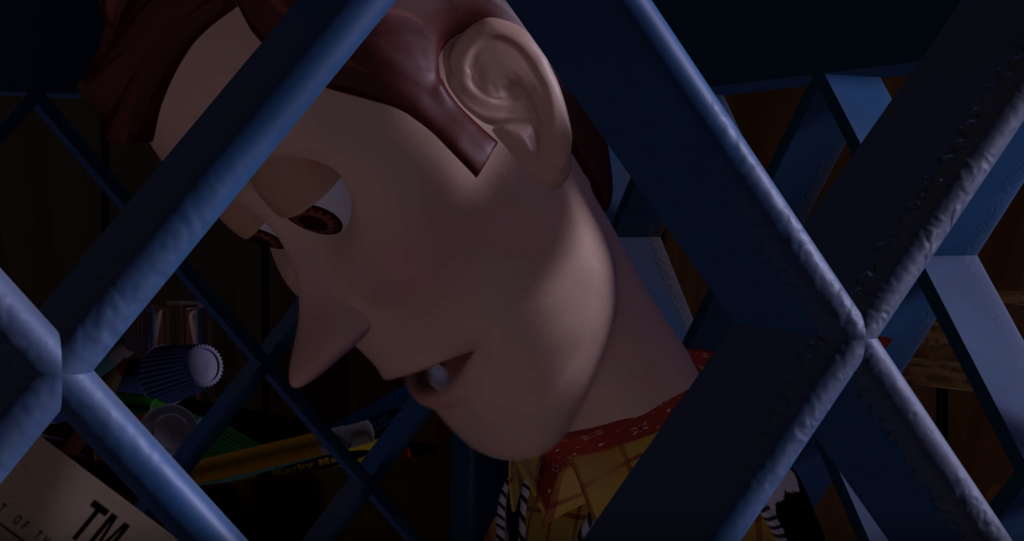
(Buzz looks at his boot which has “Andy” written on it. Seeing this name snaps him out of the funk.)
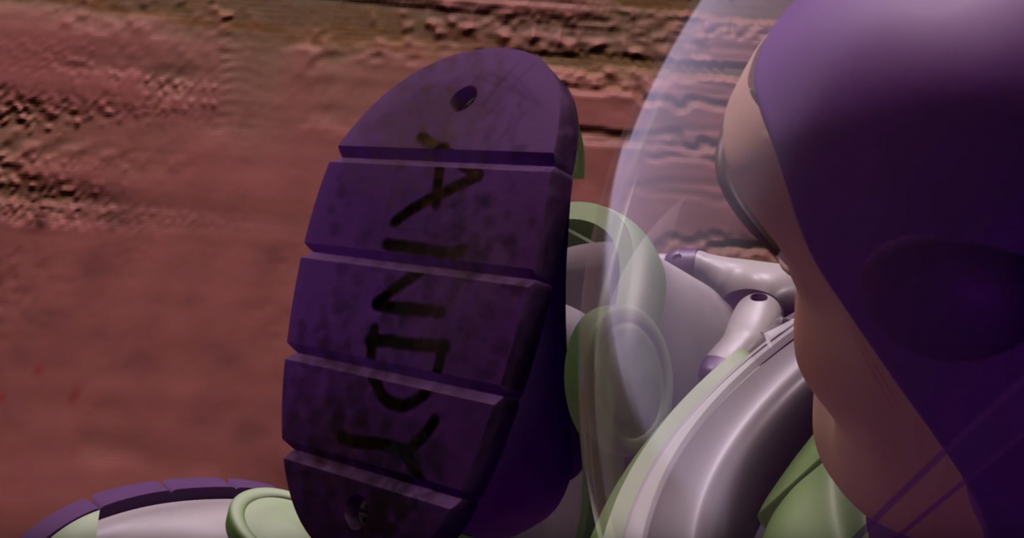
Woody: Listen, Buzz, forget about me. You should get out of here while you can…
(Now Buzz has regained his spirit, but the tables have turned and Woody needs Buzz to lift him. Woody hears a noise and looks up to see Buzz on the windowsill.)
Woody: What are you doing?
Buzz: C’mon Sheriff, there’s a kid in that house who needs us. Now let’s get you out of this thing.
(Buzz looks out the window and sees that dawn is breaking. The darkness has passed.)
Buzz Lightyear discovers his true purpose
In the beginning of the movie, Buzz believed he really was a space ranger. He wasn’t so great at this job. His gadgets did not actually work and he could not fly. In other words, he was not a superhero.
This scene raises the question: In what ways do I think I am supposed to be somebody else? What would happen if I embraced who I really am, and not what I think I should be, or what anybody else has in mind?
Woody gave Buzz a wonderful gift of understanding who he really was, and that being a toy is a terrific job. “Over in that house is a kid who thinks you are the greatest…”
Buzz finally embraced his true purpose, the purpose for which he was made. This hails back to Aristotle: Something is good when it fulfills its intended purpose.
Likewise, I am good when I fulfill my intended purpose.
In the teen class, we discussed what it feels like to believe we are insignificant and face fears that maybe we are not very special or useful. Teens struggle with depression, bullying, and thoughts of suicide. Part of the antidote lies in understanding our true identity as carriers of light and unique purpose. Buzz had more power than he thought, and so do we all.
Related article: Mr. Rogers on anger, suicide, and revelation through silence
How purpose relates to theme in writing
Since this is an article about writing, let’s see how purpose relates to the idea of theme in a story.
Each vignette (or short story) in a book or movie will have a theme, and those mini-themes will tie into an over-arching theme of the finished product as a whole.
Related article: What is the theme in writing your story?
Hence, whatever you discover as your purpose of your life will play into the theme of your book. In other words, to discover your theme is to uncover your purpose and vice versa.
The cosmic assignment desk
Steven Pressfield, who wrote The Legend of Bagger Vance and the quintessential book on creativity and resistance, The War of Art: Break Through the Blocks and Win Your Inner Creative Battles, gives another insight I love. In his book, The Artist’s Journey, he wonders if Stephen King knew his subject would be horror when he was a child. “I doubt it very much,” he says. He then elaborates:
“It’s as though some Cosmic Assignment Desk, with access to our test scores and aptitude charts (that we ourselves have never seen) is suddenly calling us forward and with absolute authority handing us our orders packet. The artist’s journey is nothing if not full of surprises.”
Steven Pressfield, The Artist’s Journey
Have you ever looked back on life and felt like there was some cosmic assignment desk doling out the orders? I have. I started writing in 2007, propelled by some unexplained but strong nudge to pick up a pen. On the very day I started, in the very moment I was writing, I got the call that my dad had died. Everything on the page was about my parents. That was the beginning of my journey. To use Joseph Campbell’s language, that was my call.
Man’s Search For Meaning
No article would be complete without referencing Viktor Frankel’s masterpiece, Man’s Search for Meaning. If you have not read it, you should. Everyone should. Frankel was a holocaust survivor who asked profound questions. He consciously decided to observe human nature as a way of processing the horrors of World War II. He somehow knew that if he survived, he would write about what he learned.
One of the most pointed questions he asked was this: What is the difference between those who give up, or who aid their captors vs. those who shared their last crust of bread?
He concludes that we all have a choice to respond, and the people who get through adversity are the ones who find meaning in their circumstances. He wrote this:
“We who lived in concentration camps can remember the men who walked through the huts comforting others, giving away their last piece of bread. They may have been few in number, but they offer sufficient proof that everything can be taken from a man but one thing: the last of human freedoms—to choose one’s own attitude in any given set of circumstances—to choose one’s own way.”
Viktor E. Frankel
Purpose in suffering
Frankel also addresses the meaning of suffering, and if anyone is qualified to speak on this subject, it’s him. I will never forget this poignant passage:
“If there is a meaning in life at all, then there must be a meaning in suffering. Suffering is an ineradicable part of life. Even as fate and death. Without suffering and death, human life cannot be complete.
“We were at work in a trench. The dawn was grey around us; grey was the sky above; grey the snow in the pale light of dawn; grey the rags in which my fellow prisoners were clad, and grey their faces. I was again conversing silently with my wife, or perhaps I was struggling to find the reason for my sufferings, my slow dying. In a last violent protest against the hopelessness of imminent death, I sensed my spirit piercing through the enveloping gloom. I felt it transcend that hopeless, meaningless world, and from somewhere I heard a victorious, ‘Yes’ in answer to my question of the existence of an ultimate purpose.
“At that moment a light was lit in a distant farmhouse, which stood on the horizon as if painted there, in the midst of the miserable grey of a dawning morning in Bavaria. ‘Et lux in tenebrislucet‘ — and the light shineth in the darkness. For hours I stood hacking at the icy ground. The guard passed by, insulting me, and once again I communed with my beloved. More and more I felt that she was present, that she was with me; I had the feeling that I was able to touch her, able to stretch out my hand and grasp hers. The feeling was very strong: she was there. Then, at that very moment, a bird flew down silently and perched just in front of me, on the heap of soil which I had dug up from the ditch, and looked steadily at me.”
Viktor E. Frankel
The takeaway for me is that we get through the hard stuff by believing that our lives matter. When we see a bigger picture beyond immediate suffering, we rise above it. In storytelling, we convey meaning through the story’s theme. In life, the meaning we discover is our our purpose.

Rhonda Lauritzen is the founder and an author at Evalogue.Life – Tell Your Story. Rhonda lives to hear and write about people’s lives, especially the uncanny moments. She and her husband Milan restored an 1890 Victorian in Ogden, Utah and work together in it, weaving family and business together. She especially enjoys unplugging in nature. Check out her latest book Remember When, the inspiring Norma and Jim Kier story.


